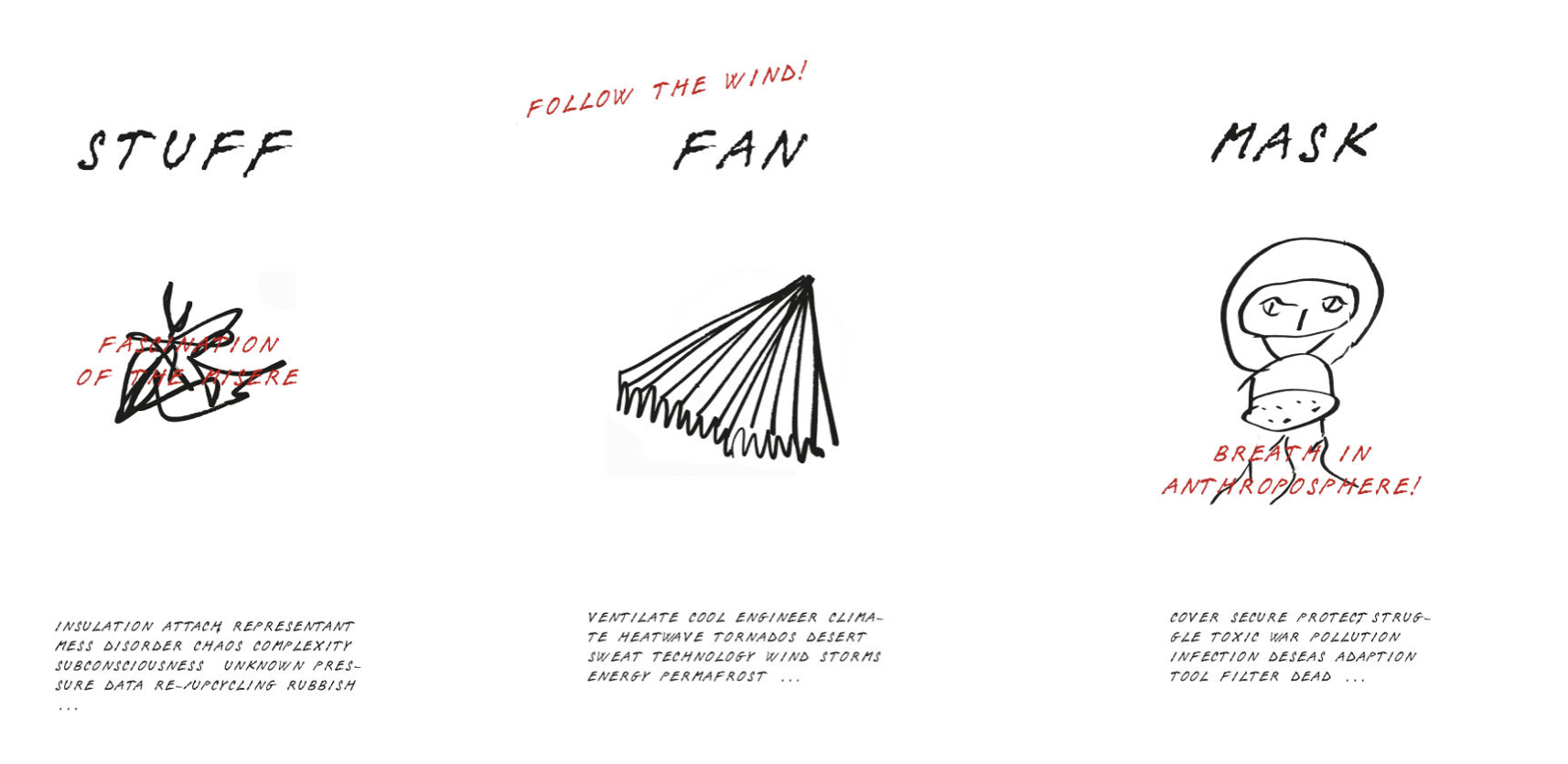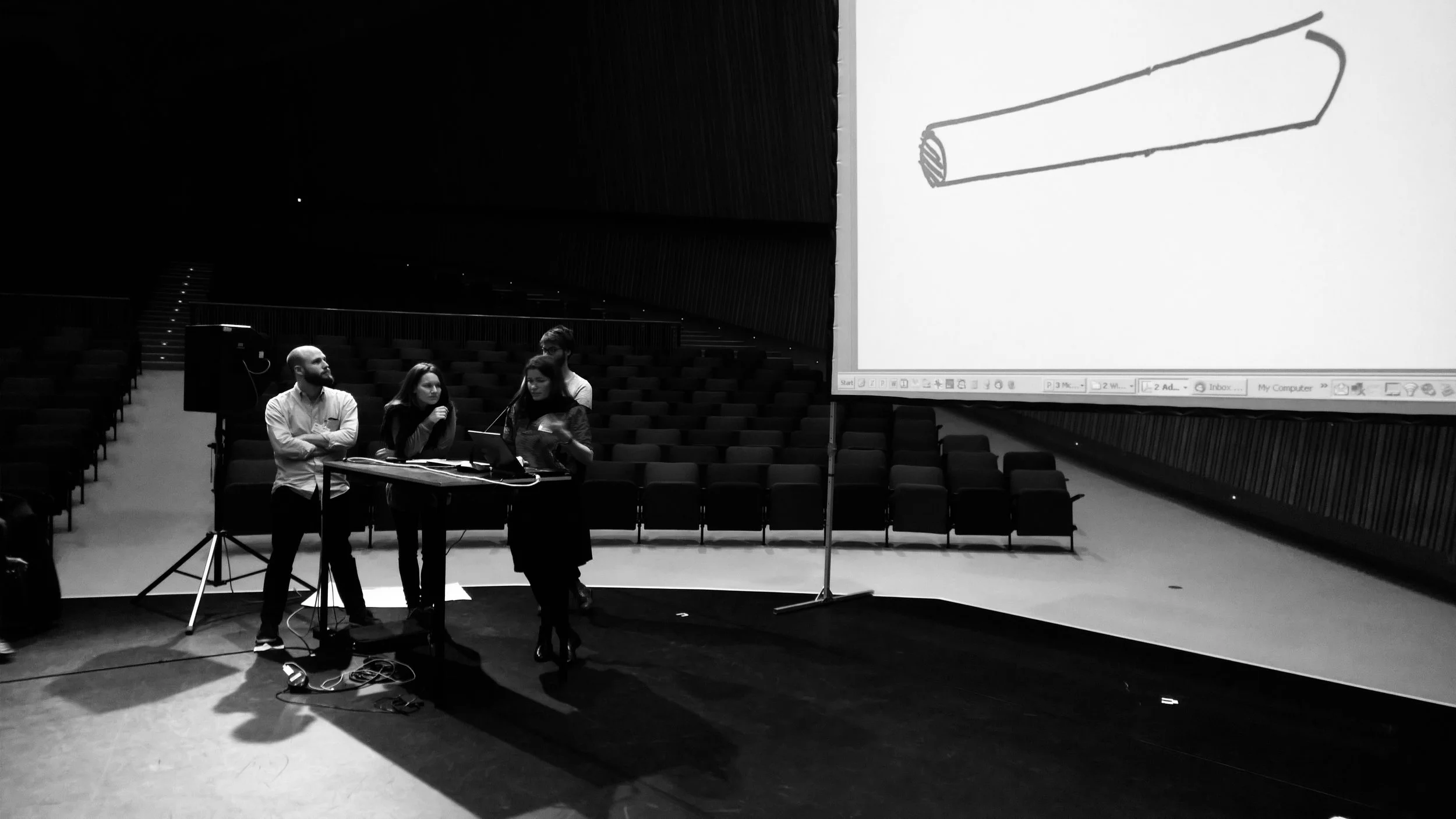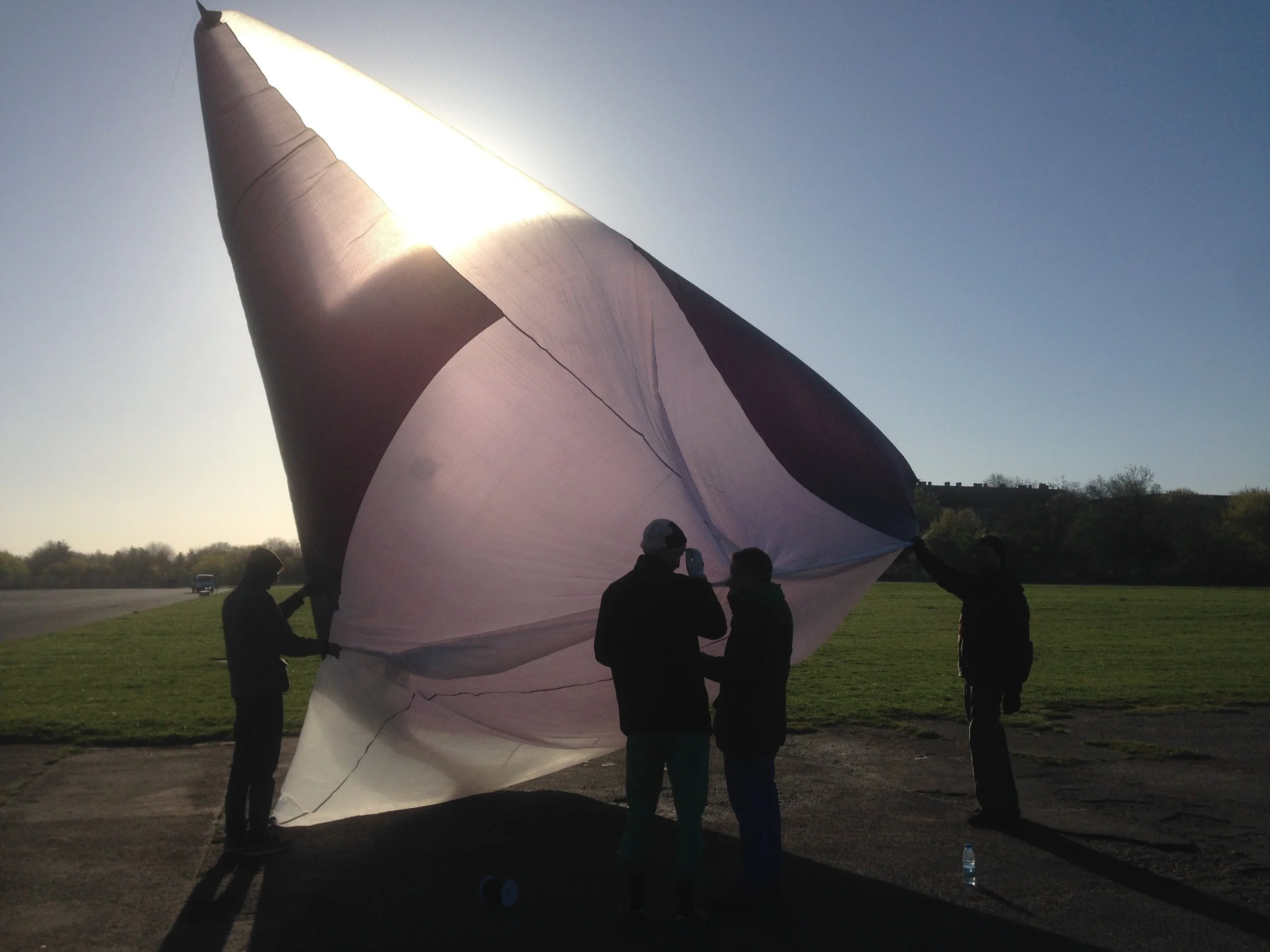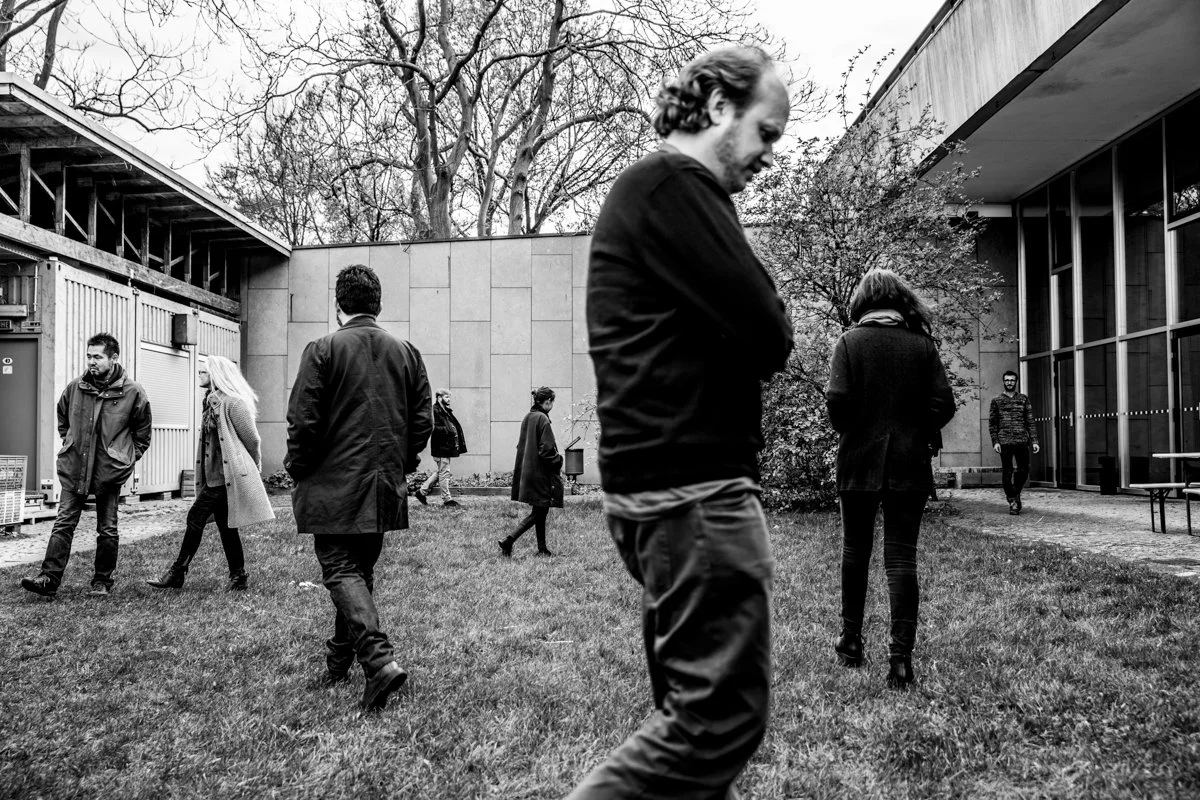ANTHROPOZÄN PROJEKT
Das Anthropozän-Projekt am HKW (Haus der Kulturen der Welt, Berlin) ist eine Kulturelle Grundlagenforschung mit den Mitteln der Kunst und der Wissenschaft.
Unsere Vorstellung von der Natur ist überholt. Der Mensch formt die Natur. Das ist der Kern der Anthropozän-These, die einen Paradigmenwechsel nicht nur in den Naturwissenschaften ankündigt, sondern darüber hinaus in Kultur, Politik und Alltag nach neuen Wegen sucht. In einem zweijährigen Projekt lotete das HKW 2013 und 2014 die vielfältigen Implikationen dieser Hypothese aus.
In Zusammenarbeit mit dem Max-Planck-Institut für Wissenschaftsgeschichte Berlin und weiteren Partnern weltweit entwickelt das HKW seit 2013 in einer Vielzahl von Formaten kontinuierlich das Anthropozän-Curriculum, ein stetig wachsender Korpus aus experimentellen Forschungsfragen und -designs, Feldforschungen, Bildungs- und Kollaborationsformaten.
Anthropocene Curriculum
Um die komplexen Transformationsprozesse des Anthropozän versteh- und gestaltbar zu machen, bedarf es einer gemeinschaftlichen und radikal transdisziplinären Praxis der Wissensproduktion und -vermittlung. Es gilt, neue Formen und Methoden der Zusammenarbeit zwischen Wissenschaft, Kunst und bürgerschaftlichem Engagement zu erproben und zu ermöglichen.
Anthropocene Campus
Als exemplarischer Modellkurs wurde das Curriculum erstmals in den mehrtägigen Campus-Veranstaltungen Anthropocene Campus (2014) und Anthropocene Campus: The Technosphere Issue (2016) am HKW erprobt. Seitdem wurde das Campusformat von einer Vielzahl internationaler Projektpartner übernommen und mit eigenen Schwerpunktsetzungen durchgeführt.
Quelle: HKW
ANTHROPOCENE CAMPUS 2016: THE TECHNOSPHERE ISSUE
Aufgrund der Verflechtung zwischen menschlicher Kultur, natürlichen Umgebungen und globalen Technologien bildet die Technosphäre eine neue und hochdynamische Komponente des Erdsystems. Diese neue Sphäre schafft hybride Ökologien, die den Stoffwechsel unseres Planeten drastisch verändern. Amorph in seiner Gestalt, ist es dynamisch und unhandlich, da es die Geschichte dieses Planeten und die Lebensbedingungen auf ihm verändert. Das Dilemma der globalen Technologie und ihrer Identität war das Hauptthema der Technosphäre.
SEMINAR: KNOWING (IN) THE ANTHROPOCENE
Is a different kind of technosphere possible? What forms of knowledge might a different technosphere require and engender? In order to explore such questions, we will take as our point of departure the Aerocene: a nascent, collaborative, speculative vision of the future.
THE AEROCENE
THE AEROCENE / Floating into the Post-Anthropocene Aerocene is an open-source artistic project initiated by Studio Tomás Saraceno. The Aerocene is also the name given to a new and hopeful post-Anthropocenic epoch of Earth’s planetary history. As described by Tomás Saraceno, Sasha Engelmann and Bronislaw Szerszynski, to envision the Aerocene “is to imagine a metabolic and thermodynamic transformation of human societies’ relation with both the Earth and the Sun. It is an invitation to think of new ways to move and sense the circulation of energy. It is a scalable process to re-pattern atmospheric dwelling and politics through an open-source ecology of practices, models, data—and a sensitivity to the more-than-human world.” The Aerocene project has been a major inspiration for the Anthropocene Campus Seminar Knowing (in) the Anthropocene. Recently, Studio Tomás Saraceno has been working on the Aerocene Explorer, a DIY flying sculpture for solar-powered atmospheric exploration.
This flying sculpture was raised by the participants of the Anthropocene Campus 2016 during the workshop on Tempelhofer Feld. With Tomas Saraceno, Sasha Engelman, et. al.
EXPLORING SPACE: AN EXERCISE
This short exercise has been developed to provide an alternative mode of thinking about space through an embodied experience. Developed from the workshop “Knowing (in) the Anthropocene” during the second Anthropocene Campus, its motivation comes from ideas explored by the work of artist Tomás Saraceno through his Aerocene project. Through the production of aerosolar sculptures—large sun-powered lighterthan- air membranes—Saraceno provokes a rethinking of our engagement with energy, elemental forces, space, and other matters: To become aerosolar is to imagine a metabolic and thermodynamic transformation of human societies’ relation with both the Earth and the Sun. It is an invitation to think of new ways to move and sense the circulation of energy. And it is a scalable process to re-pattern atmospheric dwelling and politics through an open-source ecology of practices, models, data—and a sensitivity to the more-than-human world. Rethinking and reimagining space asks us to become more aware of our own spatial relationships. Our exercise is designed to allow people to explore this and to expand their personal awareness of spatial dynamics in new and perhaps unconsidered ways. In doing so, we grounded the exercise in an approach informed by performance and movement research, which pulls us back into the experience of the body. It is through the body that we experience the world, and the aim of embodied research focuses on our wider range of sensory and bodily states and experiences. Our aim in developing this embodied exercise is to expand participants’ thinking about their relationships with space. It will provoke participants to consider the different ways in which they can sense and understand space and encourage them to consider how they might perform differently its dynamics and relational politics.
This exercise, presented during Anthropocene Campus 2016, is aimed at improving and transforming our personal awareness of space and spatial dynamics—expanding on the concept of “knowing” in the Anthropocene.
Image by Katy Otto
Anthropocene Campus 2014: The Anthropocene Issue
Das Modellprojekt erforscht Formen und Methoden der Wissensvermittlung und geht Fragen des Erwerbs von und des Umgangs mit Wissen im Zeitalter globalen Wandels nach. Mit dem Anthropocene Campus wird das exemplarische Curriculum sowohl erstmals erprobt wie auch weiterentwickelt. 100 internationale Nachwuchsforscher aus den Natur- und Geisteswissenschaften, den Künsten sowie weitere Akteure jenseits des etablierten Wissenschaftsbetriebs werden an diesem Curriculum-Experiment teilnehmen, ihre jeweiligen Perspektiven und auch Expertisen einbringen. Begleitet wird der Campus von einem öffentlichen Programm, das abschließend in einem öffentlichen Forum die spezifische Rolle von Bildung bei der kollaborativen Entwicklung von transdisziplinären Fragestellungen erörtert. Veranstaltet auf nichtakademischem Terrain stellt diese Verhandlung die seltene Gelegenheit dar, einen pädagogisch brauchbaren Entwurf für künftige Formen der Wissensgenerierung und des Wissenstransfers zu entwickeln.
Seminar Imaging the Anthropocene (Cluster Representing):
The intriguing concept of the Anthropocene as developed by science remains peculiarly flat and colorless when it comes to concrete images, which are lacking cultural nuance and historical depth. New imaginaries and imaginations are needed to engage with alternative futures of infrastructure and anthropogenically altered landscapes. How do we create images of the world or of global change? Where would Anthropos have to be situated and where can culture be found? And if we think of the Anthropocene as a co-production of billions of people, how does this challenge our imagination? Wolfgang Lucht and Philipp Oswalt search for alternative images and imaginations of the era of humankind.
Terraforming (by Wolfgang Lucht, Potsdam-Institut für Klimafolgenforschung)
We set off from the initial agreement that the challenges inherent to engaging with the issues and questions posed by the concept of the Anthropocene were not predicated on problems of representation, nor could they be sufficiently addressed by that mode. We were interested, therefore, in questions pertaining to agency: How to create, perform, or enact devices or modes of thinking by way of direct engagement with discursive materials, which indicated the challenges that needed addressing, and necessarily required participation.

Imaging the Anthropocene / Terraforming / Terraforming Kit










